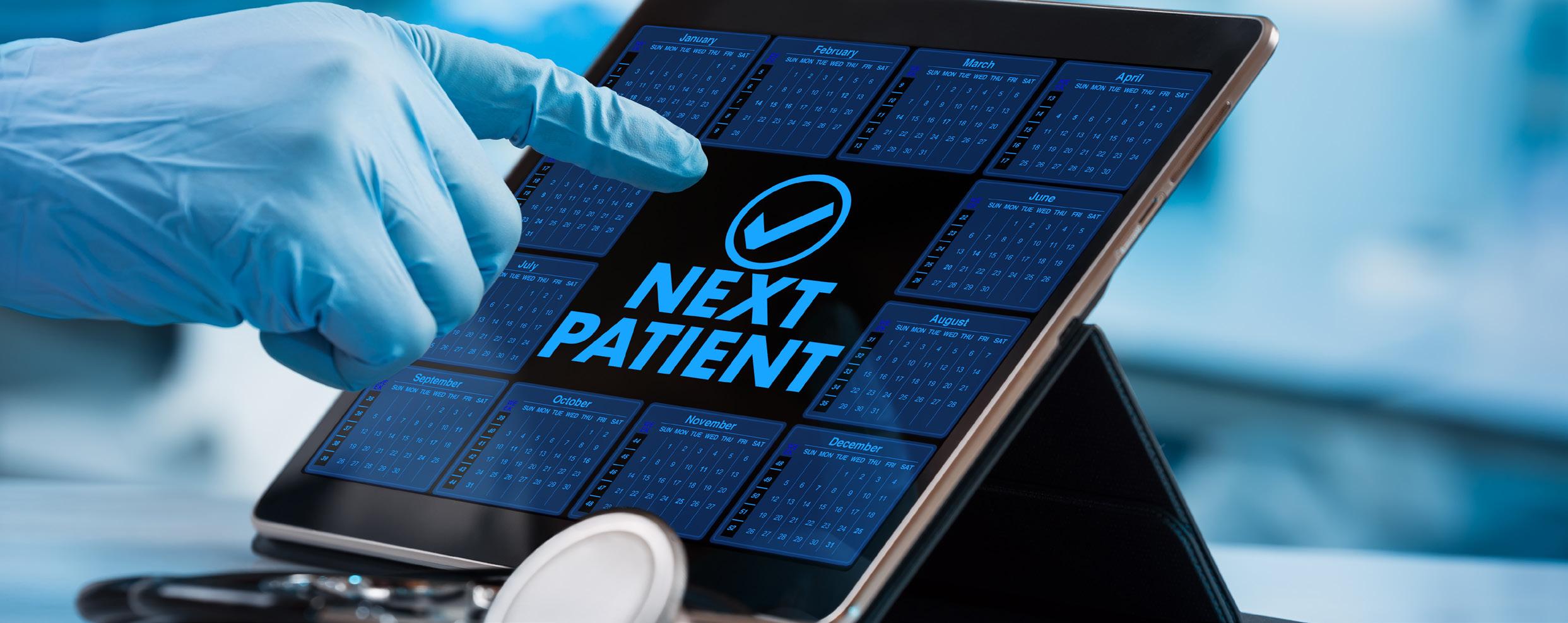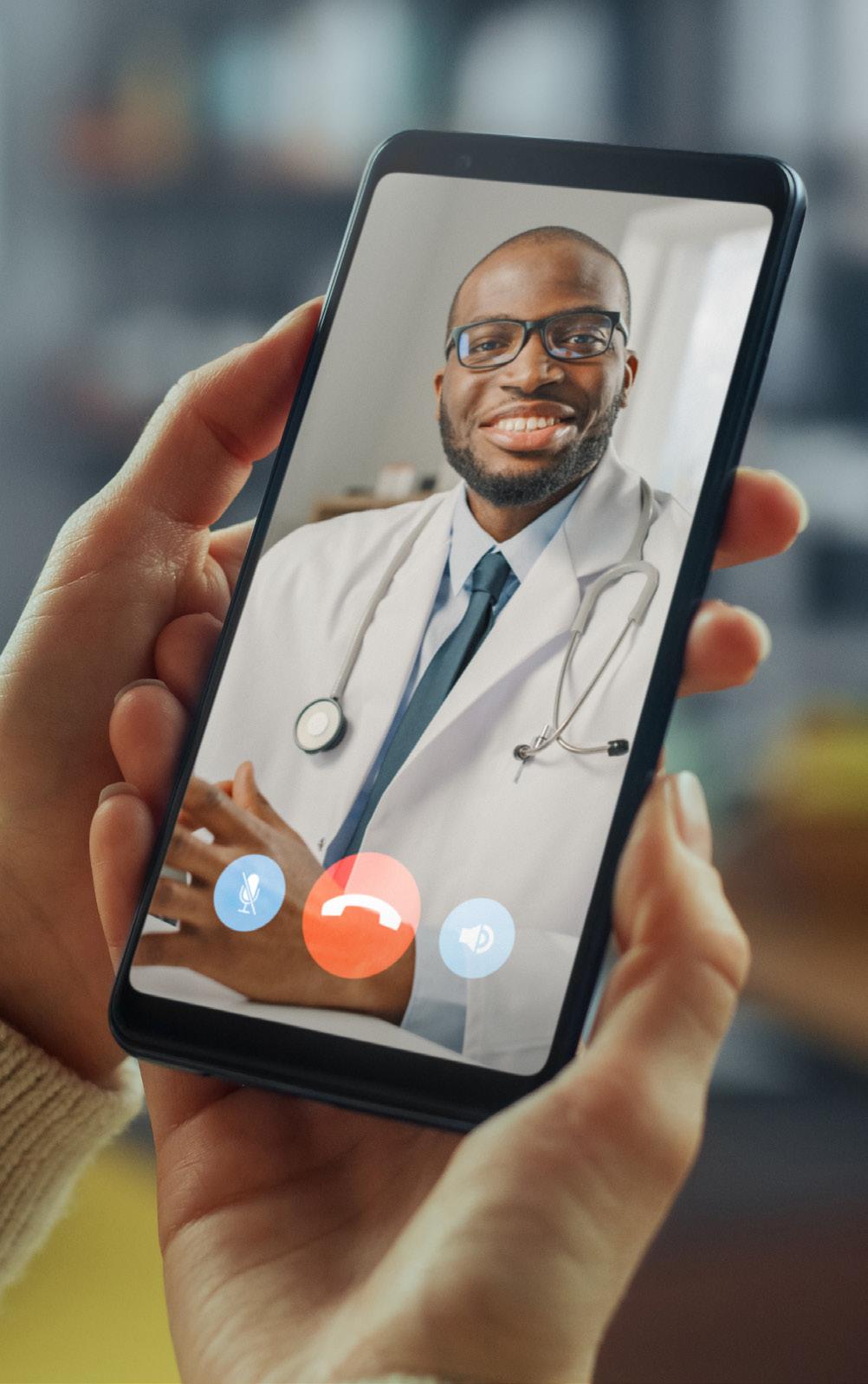
3 minute read
Using technology to tackle the backlog
from Health Business 23.3
by PSI Media
HB spoke to Dr Patrick Davey, a cardiology consultant from Northampton on how remote consultations are being used to tackle the backlog
The National Consultant Network (NCN) service facilitates communication between health professionals and specialists. There are 200 NHS consultants in the NCN service who receive around 100,000 calls and messages a year from GPs looking for advice on their patients.
Can you explain how the NCN works?
“Imagine you’re visiting your GP with an issue and your GP is unsure about your symptoms. Previously they would probably refer you to a specialist, which might involve a long wait for a hospital appointment. Then Consultant Connect came along with tech that allows GPs to reach an NHS consultant quickly for specialist advice.
“The GP selects the relevant specialty and the tech will call through a list of numbers, bypassing the hospital switchboard. If they can’t answer it moves on to the next. On average calls are answered in 30 seconds.
“From the call, the GP can be advised on what the appropriate next steps are for their patient, often an unnecessary hospital visit is avoided, but if it is required, the patient is sent to the right department. Ultimately it means patients receive better, faster care.”
In what situations can it be used?
“The tech can be used for advice and guidance. I remember a call I had from a GP whose patient had ongoing chest pains. He’d been previously diagnosed with pericarditis, which is inflammation of the lining of the heart.
“Using Consultant Connect, the GP contacted me to check if the ongoing symptoms were compatible with the diagnosis. During the call I found out the patient had taken cocaine. I told the GP to refer the patient to the local cardiology department to be absolutely certain the cocaine had not damaged the patient’s heart, as this would have implications for the future.
“The patient was reassured that a specialist had been consulted and his GP was able to provide clear next steps for his treatment.”
What problems can this system help to address?
“Seven million people are currently waiting for treatment, and clearing those waiting lists can be daunting for those working in the NHS and frustrating for the patients left waiting. We know the pandemic put huge pressure on the system and has caused backlogs.
“What’s great is Consultant Connect is now helping ease some of those pressures, by limiting unnecessary visits and by getting patients seen by the right specialists.

“Once upon a time there was a disconnect between GPs and specialists in hospitals. If you had a question about your patient you’d have to call through to the switchboard, be put on hold while the person at the other end did their best to connect you to the right person. Consultant Connect has made this process far easier.”
What are the benefits for patients?
“Simply, it improves the patient’s experience.
“Often GPs will call me up when the patient is still in the room. The patient hears their GP speaking to a consultant about their symptoms. Immediately, they have more confidence in what is going on and feel that something is being done.
“When patients are referred to secondary care, they often have no idea for weeks or months whether that referral has been reached or what is happening. In the meantime, the patients’ anxiety goes up while they’re waiting for an appointment.
“By using Consultant Connect, patients can be seen quicker and get assurance on the decision that we’re making. If they don’t need to be referred they won’t be, and if they do they’re referred to the correct specialist. Overall, they’ll have a much better experience and won’t have to go through unnecessary stress.”
What are the benefits for the NHS?
“There are inevitably times when GPs are not sure about a patient’s symptoms - when they have to put their hand up and say ‘look, I have a problem. I don’t know the answer’. It is a mark of quality in GPs that they can ask for help when needed and seek advice for what to do next.
“So when GPs ring me up and start explaining the problem, I think to myself that this person really values my opinion. It’s not a long conversation, maybe a minute or a couple of minutes. But when they have a problem and I can help, it’s the most wonderful interaction.
“GPs have been hammered with the message that they mustn’t send patients to hospital. When they call consultants, they’re seeking approval for what needs to be done. There are a lot of grey areas, so it’s often a question of managing uncertainty in a safe way. GPs are very grateful because a problem shared is a problem halved.”
Why did you decide to get involved in the project?
“When I started using the service, I actually found it really enjoyable. I’ve heard it said that at heart, we’re all in the Anglo Saxon hut telling stories and listening to stories. So when GPs call you, you’re just listening to the story. I found interacting with that service delightful - I felt I provided useful advice for GPs.
“I often say to colleagues: what’s not to like about the service. There tends to be initial resistance to new technology and changedifferent people had different perceptions of that, but I was very enthusiastic about change.” L https://www.consultantconnect.org.uk/ what-we-do/national-consultant-network/










